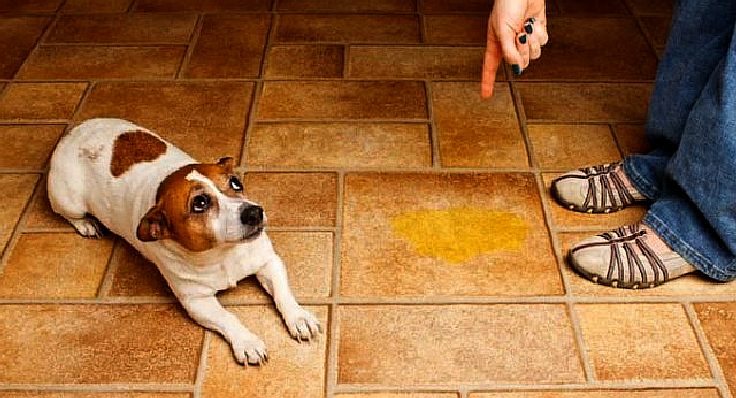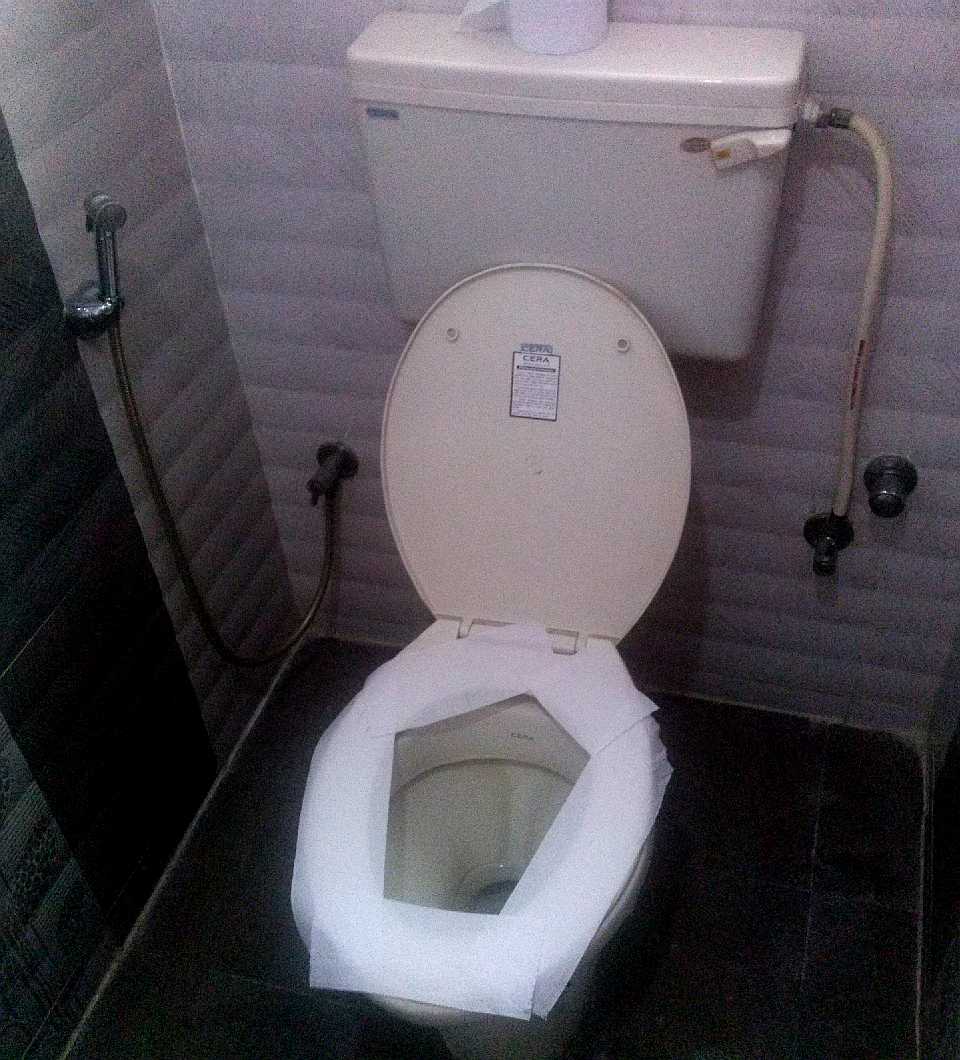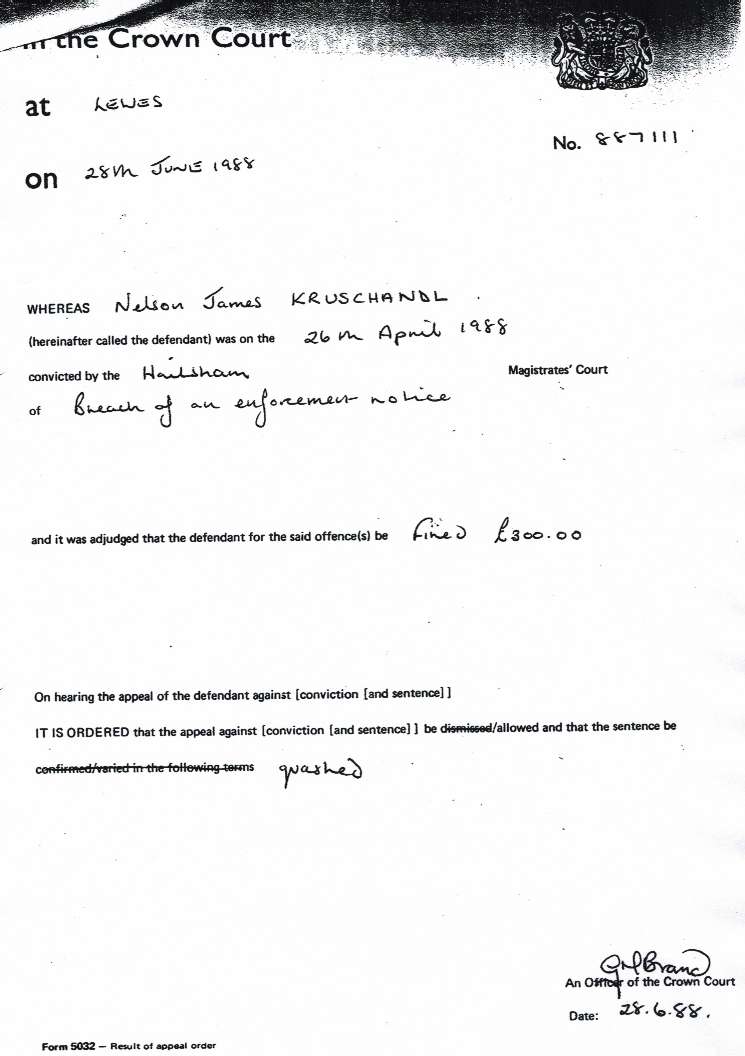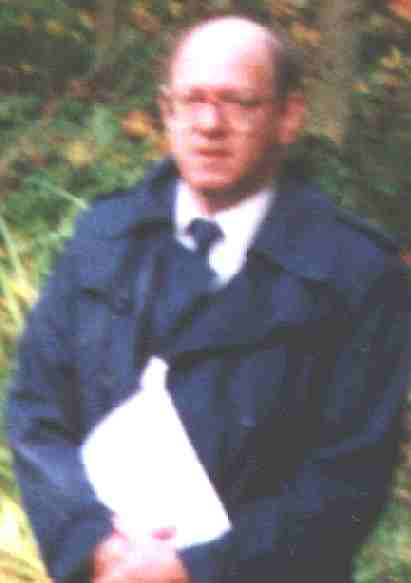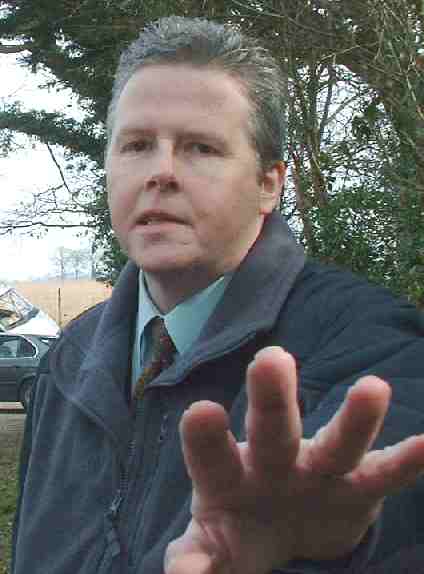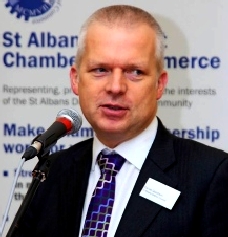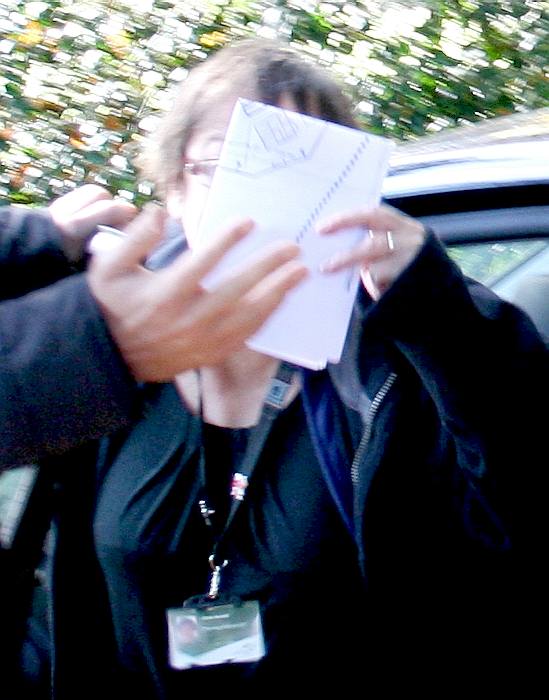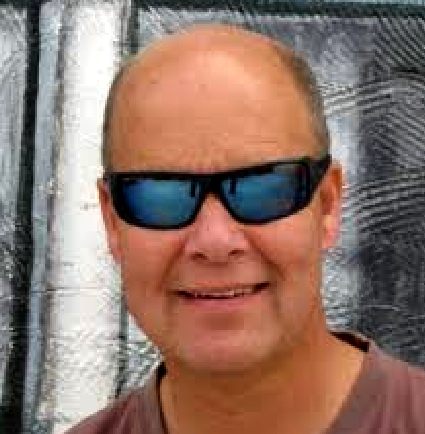|
GEOFFREY ALAN JOHNSON
|
|||
|
HOUSE TRAINING COUNCILS - Making councils obey the law of the land is incredibly difficult where institutionalized discrimination is rife and there are too many vested interests for them to be able to do the right thing. We need then to look at how we train animals not to foul our houses, for guidance on how to treat officers and members that are well versed in controlling development to suit their pockets, rather than the pocket of all those young families that cannot afford to live.
We are not pulling your chain when we reveal the story of Geoff Johnson during his time as a soil-icitor at Wealden District Council.
Geoffrey (or Geoff) Johnson was a legal officer working for Wealden District Council during the time when Nelson Kruschandl was a hot target for victimization - and especially concerning the toilet appeal to the High Court with Dame Butler-Sloss presiding, telling Nelson that he should not benefit from having a toilet and washing facilities like everyone else in the United Kingdom - that he should remove his toilets at once and PRESUMABLY, do his business in the hedges. For once having removed them to assuage the lady judge in the Court below, his landlord could - presumably - put them back to comply with the Health & Safety Regulations 1992. This try on by the council turned out to be a Royal Flush for the respondent who scored again when this council tried to bankrupt him - but could not legally secure such monies when they would have been obtained by deception, so this council had to arrange to sweep them under the carpet in making a deal with Mr Kruschandl.
My goodness what a lot of presumption there is in Wealden, Have you noticed that?
Of this farce, Geoff Johnson wrote to Mr Kruschandl to advise something along the lines of: "Arguably, the Order of the High Court removes the obligation to provide toilet facilities." But surely, Mr Johnson, it was your council that asked the High Court to make this Order. It appears then that Wealden advocate practices from the dark ages when urinating in hedges was quite normal for all - even nobility. That is until the Elsan Closet was invented, and then good old Thomas Crapper came along with flushing toilets. Before then we used leaves and grass to wipe our backsides and compete with cows, sheep and dogs to poop in our glorious green fields. And what of toilet paper. Ahhhhhhh. Still a luxury yet to be invented by Andrex and Izal, presumably, that is.
"Morning farmer Brown, enjoying your dump?"
"Mind your heads and watch where you tread," said the local butcher as, noticing that Alice the dressmaker was heading his way for her morning ablutions, he hastily tucked his johnson under cover so as not to frighten the good lady, but managed to dampen himself in the process.
"There's never a toilet when you need one," said farmer Brown, who was also caught off guard and got into even more of a mess as he hastily pulled his trousers up.
We wonder if Mr Johnson hails from India where the lack of toilets is a problem that the World Bank recognise as being a problem in granting substantial humanitarian aid, with The River Ganges awash with untreated human faeces and corpses. Presumably, no burial then for Mr Kruschandl, but a trip along the grimy Thames or maybe the river Ouse. Of course, no toilets and no burial for this poor chap and anything else this council can deprive him of including his land, when he had some to deprive of. Not that Mr Johnson is biased. He certainly lives up to his name in our opinion in the cases cited herein. We understand that John Thomas had a similar problem, only living down his name.
FLUSHED WITH SUCCESS - We imagine that Wealden would have been overjoyed in duping the High Court into making an Order that demanded removal of toilet facilities from their long-term adversary's home, condemning him to defecate in the old fashioned way - and remarkable is it not how well an animal can adapt and build from sheer determination until it is time to reveal the truth and his gleaming new urinals. The building has toilets re-fitted of course and the occupiers rejoice with each pull of the handle, at the resourcefulness of this underdog when the chips were down. The frivolity at Wealden's offices was short lived when the Health & Safety Executive chimed in to spend a penny or two. From that point on Wealden have been bogged down with the publication of what they had done - and permanent skidmarks in the underpants of their hall of shame. No amount of toilet tissue can ever wipe the brown from this council backward passages.
Toilet paper is a tissue paper product used by people primarily for cleaning the anus and surrounding area of fecal material after defecation and by women for cleaning the perineal area of urine after urination and other bodily fluid releases. It also acts as a layer of
protection for the hands during these processes. It is sold as a long strip of perforated paper wrapped around a paperboard core for storage in a dispenser near a toilet. Most modern toilet paper in the developed world is designed to decompose in septic tanks, whereas some other bathroom and facial tissues are not. Toilet paper comes in various plies or layers of thickness, from one-ply all the way up to six-ply, meaning that it is either a single sheet or multiple sheets placed back-to-back to make it thicker, stronger and more absorbent.
The great thing is that we can all sit by the camp fire and laugh as we regale each other with this tale of unfortunate events; misfortune in being caught with their trousers down on the part of a council that - not for the first time - tried to prove that water runs uphill. So much for toilet humour.
But, would you want this solicitor working for your council now he's soiled his good name? Apparently, and according to his Linkedin page, he is though employed by Eastbourne Borough Council and lives in East Dean, where he - presumably still advocates pissing in the streets - but only for selected members of the public who it appears he advises should be singled out for unfavourable treatment for having the temerity to prove that Ian Kay, Victorio Scarpa, Ashley Brown, David Phillips and Christine Nuttall (to name a few) had all been wrong when they explained to various Inspectors and High Court judges that the old generating building at Herstmonceux were not the generating buildings at all, but a newer build from, presumably, the Second World War M'lud.
In fact Geoff, the Generating Works is included on a Monument Protection Programme with English Heritage. It is a rare surviving example of a wooden industrial building from C.1900-1909 and provided electricity for the village of Herstmonceux since before your were born, now the subject of a Virtual Museum project. How much ratepayer's money did you help this council to squander Geoff and how do you feel about that? Write to us if you want. We'd love to hear your side of the story. Were you bullied perhaps?
Now, don't bother asking this council why they acted so in the above cases, you may be given the bum's rush, presumably because Zurich Municipal have gagged them for fear that their insurance policy is insufficient to cover the criminal misdeeds of this particular local authority.
ATT: G A Johnson
FAX TO: 01892 602223
REQUEST TO VIEW REPORTS & BACKGROUND PAPERS
Thank you for your letter dated 15th August 2001 the contents of which are noted.
C. C. Members Executive Panel
MORE PERVERTING THE COURSE OF JUSTICE
Don't flush that thought from your minds just yet. The toilet case is not an isolated incident but more one story in a catalogue of farces termed "Malice in Wealdenland" by the dogged investigator: Chester Hudson in his splendid play about the inconvenient memory lapses of Ian Kay. This council is awash with grubby stories, a virtual torrent of effluent. So many in fact, that you may begin to wonder if they have wash basins at the council's offices or know the difference between right and wrong - or dirty and clean?
For example, the chief enforcement officer of Wealden District Council, sought authority to engage contractors to remove containers at Withylands Farm, Crowborough. A senior Wealden solicitor, advised the north district planning committee (DCN) not to allow John Hoath his right to a fair hearing, but rather to skip this stage and just take the offending articles. The council's solicitor said it would be a mistake to allow Mr Hoath a platform from which he could defend his use of containers for the storage of wood in the Magistrates or Crown Court. Councillors were told this because the officers knew they would lose the case - so not to provide Mr Hoath with a platform on which to allow him to come out the victor. This is also the reason why they refused to reveal their case against Mr de Rivaz in a landmark drainage case that Mr De Rivaz won, to include a costs award for his own services as a surveyor.
How do we know this? Well, some closed session reports are recorded and supplied to us anonymously. In fact holding a meeting affecting a persons rights in closed session is also a breach of Article 6. This is because a person is entitled to know what is being said about him, doors open, and to address whatever committee (a quasi court) is taking a decision affecting his rights.
Again, the point here is that this council knew it was acting unlawfully in this case and it knew it was acting unlawfully concerning Brian Goodacre and Lawrie Trill. Did it stop these bullies - not on your life. It was Geoff Johnson who tried to deprive Mr Trill of his right to a fair hearing, when at an area plans south meeting, he gathered up the Affidavits of Mr Trill (that had been carefully distributed to each seat position) in relation to his tractor and other farming equipment that David Phillips wanted to charge in and liquidate without affording poor Lawrie his day in Court and no doubt without accounting properly for the monies from such liquidation that, it is alleged, was often a back of the lorry sale and no questions asked - or where a bill for disposal was settled but no goods actually delivered for disposal.
Why would this council not prosecute in compliance with Article 6? Because they would lose again of course, presumably, that is. The finest example of this council shooting themselves in the foot is when they prosecuted Mr Kruschandl for allegedly breaching an enforcement notice in 1987. In that case Wealden had drawn up their plans incorrectly serving on a coal bunker instead of a WWII bomb shelter. Not only that, but we've recently discovered that they failed to serve on the then landowner of the coal bunker or bomb shelter - totally invalidating the proceedings as being improperly founded. Naturally, Judge Clay quashed the conviction from the Magistrates Court below - grudgingly of course - because the courts are there to serve councils rather than justice, except is a few rare cases when all the finest case precedents are set.
In Mr trill's case Affidavits had been provided to all of the members seating places. We presume, that the last thing that Geoff would have wanted was for the members to see the truth. You will not be surprised to learn that on this occasion David Phillips was prevented from, presumably, stealing Mr Trill's tractor, but only because he'd put the members on notice as to the proposed theft.
Wealden District Council are said by many members of the public to be one of the most devious and corrupt in the United Kingdom, so must employ solicitors who will tow the party line and in some cases, lie for their councils.
Both Wealden and Rother are said to use similar methods to cover the tracks of a murky past involving institutionalized corruption and discriminatory policies at a high level. That may be a good thing if you are a dishonest council, but it is surely a matter for the Law Society where a solicitor like Geoff, who occupies a high rank and position of trust within the community - and who routinely violates his Code of Conduct - is allowed to practice law.
That agenda was and is both fraudulent and discriminatory in Article 14 terms and is thus unlawful according to Section 6 of the Human Rights Act 1998. Any person who helps Wealden and the responsible executive officers to cover up the attempted fraud is guilty of an offence under the Accessories and Abettors Act of 1861, where they become an accessory to the crime.
THE
CRAPPER - As the first man to set up public showrooms for displaying sanitary ware, he became known as an advocate of sanitary plumbing, popularising the notion of installation inside peoples homes. He also deserves fame for refining and developing improvements to existing plumbing and sanitary fittings. As a part of his business he maintained a foundry and metal shop which enabled him to try out new designs and develop more efficient plumbing solutions. He won a patent as the original inventor for using a "floating ball cock" as a part of a water closet arrangement. He invented improvements on existing water
closets, and he owned the patent for the siphonic flush toilet. He invented the manhole cover enabling easy maintenance access. As well as various improvements to plumbing fittings, not least improvements to the developing the plumbing trap (U-bend). While it's true that Alexander Cummings invented an S-shaped trap (the S-bend) in 1775, it had reliability problems. Once invented (despite its simplicity and reliability) widespread use of it in sewage systems was slow to catch on; coming, only when the Great Stink of the Thames in 1858, forced Parliament to pass laws in the 1860s for closed sewers to be installed. It would eventually be replaced by Crapper's improved bend trap in 1880. The new U-bend was a significant improvement on the "S" as it could not jam, and unlike the S-bend, it did not have a tendency to dry out, and did not need an overflow. The BBC was to nominate the S-bend as one of the 50 Things That (have) Made the Modern Economy.
Unfortunately for those living in the United Kingdom, Article 1 and 13 are excluded from the HRA 1998. The exclusion is an admission that the UK Government had/has no intention of honouring the tenets of the European Convention of Human Rights and Fundamental Freedoms. With Article 13 excluded, Article 17 has no meaning of course. Don't forget, it's one rule for England and another for Europe. Although we helped to draft the European Convention and signed the treaty, England has been trying to escape the ramifications of a free and fair society ever since, hence Brexit. Did you know it was the Brits who invented concentration camps not the Nazis? It's true.
Victorio Scarpa, David Whibley, Julian Black, Daniel Goodwin, Christine Arnold
Christine Nuttall, David Phillips, Douglas Moss, Ian Kay, Charles Lant
Abbott Trevor - Alcock Charmain - Ditto - Arnold Chris (Christine) - Barakchizadeh Lesley - Paul Barker - Black Julian - Boakes Beverley Brigginshaw Marina - Brown Ashley - Coffey Patrick - Douglas Sheelagh - Dowsett Timothy - Flemming Mike - Forder Ralph - Garrett Martyn Goodwin Daniel - Henham J - Holness Derek - Hoy Thomas - Johnson Geoff - Kavanagh Geoff - Kay Ian - Kay I. M. - Barbara Kingsford Lant Charles - Mercer Richard - Mileman Niall - Moon Craig - Moss Douglas, J. - Nuttall Christine - Pettigrew Rex - Phillips David - Scarpa Victorio Scott Trevor - Kevin Stewart - Wakeford M. - Whibley David - White, George - Williams Kelvin - Wilson Kenneth - White Steve
MISFEASANCE & MALFEASANCE
When an officer of the court omits to include evidence that he knows is relevant to a hearing, that is termed misfeasance in public office even though it is an attempt to pervert the course of justice. Where an officer then tries to cover up his or her misfeasance (as it may prove to be the case with the missing documents), that becomes malfeasance. The difference is that misfeasance is a civil wrong, whereas malfeasance is a criminal offence under common law. The leading case precedent on malfeasance is: R. v Bowden 1995 Court of Appeal (98 1 WLR).
Vicarage Lane, Hailsham,
East Sussex, BN27 2AX T: 01323 443322
STINK LINKS & REFERENCE
Shadow Sussex Police crime commissioner blogspot UK 2016 January three new cases to rock the Bill https://uk.linkedin.com/in/geoff-johnson-21609549 https://www.fca.org.uk/ http://shadowsussexpolicecrimecommissioner.blogspot.co.uk/2016/01/three-new-cases-to-rock-sussex-police.html https://web.zurich.co.uk/municipal/ http://www.royalmail.com/ http://www.sussex.police.uk/ http://www.wealden.gov.uk/
|
|||
FAIR USE NOTICE
This site contains copyrighted material the use of which has not always been specifically authorized by the copyright owner. We are making such material available in our efforts to advance understanding of environmental, political, human rights, economic, scientific, and social justice issues, etc. We believe this constitutes a 'fair use' of any such copyrighted material as provided for in section 107 of the US Copyright Law. In accordance with Title 17 U.S.C. Section 107, the material on this site is distributed without profit to those who have expressed a prior interest in receiving the included information for research and educational purposes. |
|||
|
This site is protected under Articles 9 and and 10 of the European Convention on Human Rights and Fundamental Freedoms. |
|||



